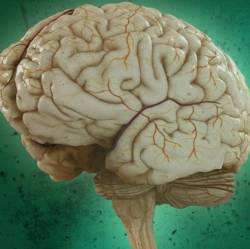
Scientists — and parents — have long wondered why we don’t remember anything that happened before age 3. As all parents know, no matter how momentous an event is in a toddler’s life, the memory soon drifts away and within months there isn’t even a wisp of it left.
Now a new study shows that “infantile amnesia” may be due to the rapid growth of nerve cells in the hippocampus, the brain region responsible for filing new experiences into long-term memory. The study was presented Friday at the annual meeting of the Canadian Association for Neuroscience.
While youngsters do seem to remember important events for a short time after they occur, they lose these memories as time goes by, says study co-author Paul Frankland, a senior scientist at the Hospital for Sick Children in Toronto.
“They can’t form stable memories of what happens in the first few years,” Frankland says. “I have a daughter who is 4 years old and because we were working on this study, I would always ask her questions about her memories of places we visited 2, 3 months ago. It’s clear that she can form memories with quite some detail. But four years from now she won’t remember anything.”
There’s always been a suspicion that the hippocampus had something to do with the puzzle, says Dr. Eric Kandel, Kavli professor and director of the Kavli Institute for Brain Science at Columbia University and senior investigator at the Howard Hughes Medical Institute.
“The hippocampus matures slowly and probably doesn’t reach any reasonable maturity until we’re 3 or 4,” Kandel says. “While 2- and 3-year-olds can remember things for a short time, the hippocampus is required for long-term storage of those memories.”
But nobody really knew the details of what happens in a toddler’s brain.
Frankland suspected that memories actually got filed away into long-term storage, but that the hippocampus lost track of where they’d been stacked during the rapid growth phase that takes place in the first few years of life.
As the hippocampus matures, huge numbers of new neurons come on line and need to be hooked into existing circuits, he says. The most likely scenario is that in all that restructuring, the brain “forgets” where it stored the memories.
